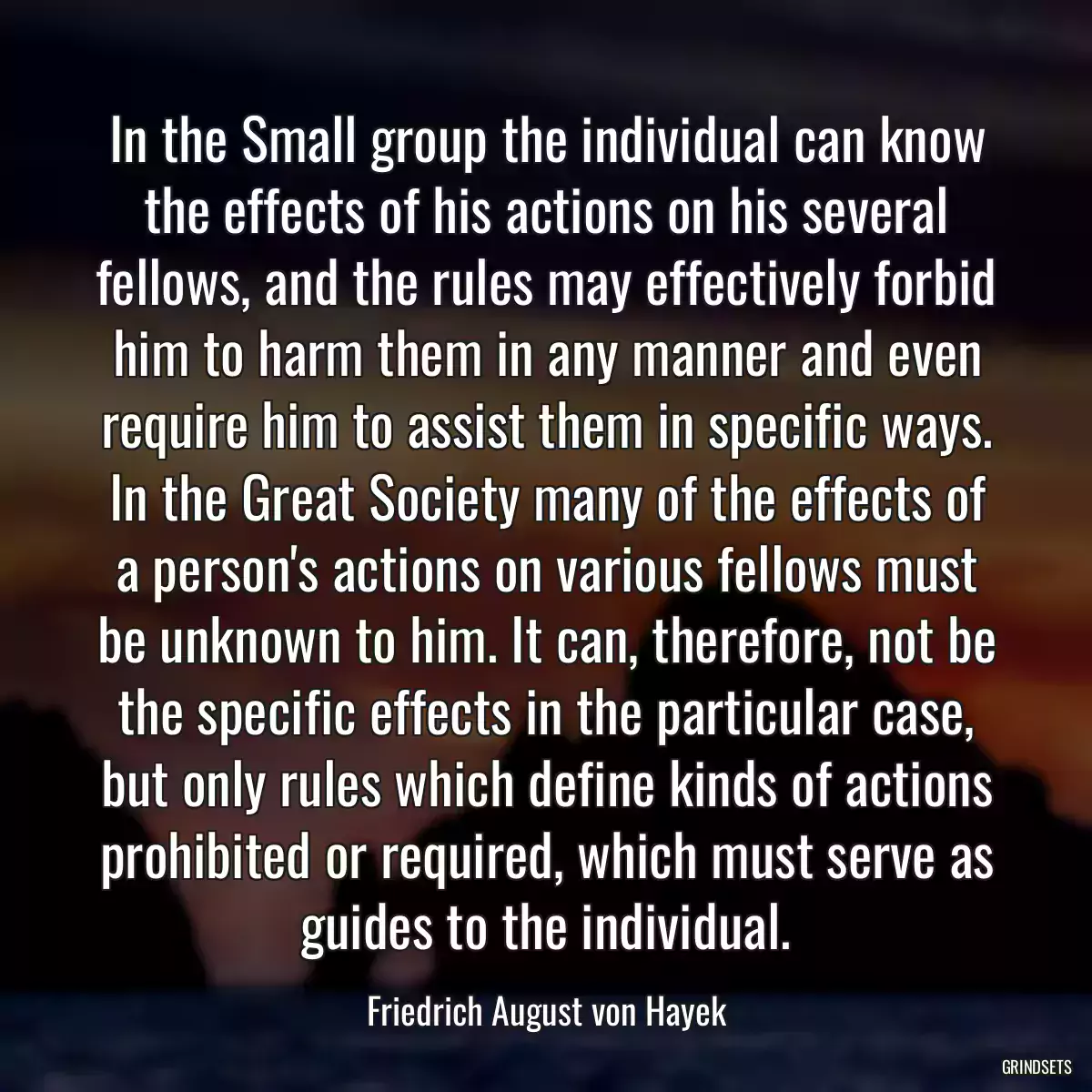
In the Small group the individual can know the effects of his actions on his several fellows, and the rules may effectively forbid him to harm them in any manner and even require him to assist them in specific ways. In the Great Society many of the effects of a person's actions on various fellows must be unknown to him. It can, therefore, not be the specific effects in the particular case, but only rules which define kinds of actions prohibited or required, which must serve as guides to the individual.